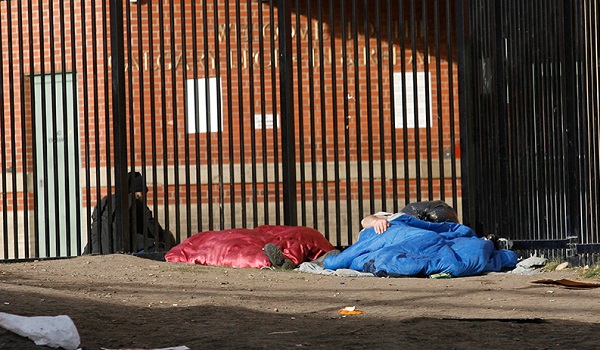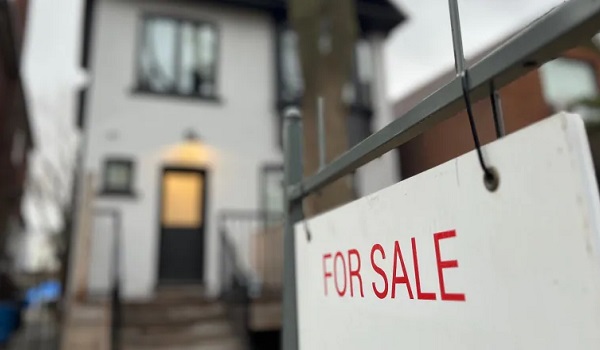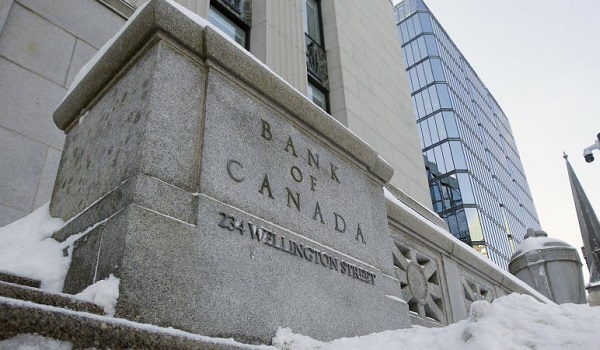Toronto to build six new permanent homeless shelters by 2030 as part of council approved plan
The City of Toronto is planning to open six new permanent shelter sites in the coming years, with two scheduled to open in 2027 and four expected to open between 2028 and 2030.
The new sites are part of a 10-year plan approved by council in 2023 that includes gradually closing temporary shelters, enhancing existing shelters and adding 20 shelter sites by 2033.
“These new shelters and all the existing shelter sites serve as more than just roofs and beds. These are critical to building a sense of community safety and stability for all of our residents,” said Etobicoke-Lakeshore Coun. Amber Morley at a press conference Wednesday, alongside Davenport Coun. Alejandra Bravo and city shelter department manager Gord Tanner.
“People accessing shelters are our friends, our neighbours, and just like you and I, they benefit from living in places that keep them close to their routines, services and communities,” Morley said, adding that the city has planned consultation with local communities to ensure a thoughtful approach.
The city, for years, has turned away hundreds of people from shelters each night due to a lack of space. This October, an average of 225 people were turned away from shelters daily, city data shows.
Permanent shelters set to open at 6 locations between 2027 and 2030
Municipal staff, not city council, approved locations for shelters to accelerate the process and makes it less politicized, the city says.
They examined more than 100 locations. Of the six they chose, four were already city property and two were purchased, Tanner said.
“The locations are a mix of existing buildings that will be renovated to become shelters or vacant lots that can be developed from the ground up,” Tanner added. “Each shelter will be built so it can be converted into permanent supportive housing in the future.”
They will allow the shelter system to grow in areas with greater need, such as family, youth, Black-led and Indigenous-focused spaces.
According to the city, the new sites will be smaller, less institutional and more homelike, with more natural materials and amenity spaces.
They will also include colours, art and symbols that are inclusive of the shelter’s demographics to make people of different backgrounds feel welcome.
Meals and laundry services will be available, as well as harm reduction and mental and physical health-care supports, with counsellors or case managers to help people make permanent housing plans.
The shelters will also offer recreation and social programming, assessments and referrals to other community services, and supports to ensure pets can stay with their owners.
Of the first two permanent shelters, one will be a youth shelter just off St. Clair West at 1615 Dufferin St. It’s expected to have capacity for 50 people.
The other five shelters will be for adults of all ages, including couples, and the city expects them to have space for 80 adults each.
The other shelter scheduled for 2027 will open at 2535 Gerrard St. E., east of Victoria Park Avenue.
By 2030, two shelters are expected to open in North York: one at 68 Sheppard Ave. W. and another at 1220 Wilson Ave.
A permanent shelter is also expected at 2024-2212 Eglinton Ave. W., off Caledonia Road.
Another will be at 66 Third St., just off Lake Shore West in Etobicoke.
New shelters are part of a long-term plan
The city is planning to add a total of 20 new shelters to the system by 2033, comprising of about 1,600 shelter spaces.
The new shelters will replace about 1,200 spots lost in the phasing out of temporary shelters and will add 400 new spaces, Tanner said.
There aren’t currently plans to make any of the six announced sites specifically for families, but the city is open to the possibility. “Families are a priority in this initiative,” Tanner said, and some of the 20 incoming shelters will be designated for them.
None of the permanent shelters are set to open in time for this winter, when demand is expected to rise, but the city said Wednesday it would add two warming cen
One warming centre would be available before the end of the year at Metro Hall on Front Street, while the other would open at Jimmy Simpson Community Centre on Queen Street East only when temperature drops below -15 C.
This article was first reported by The Star













